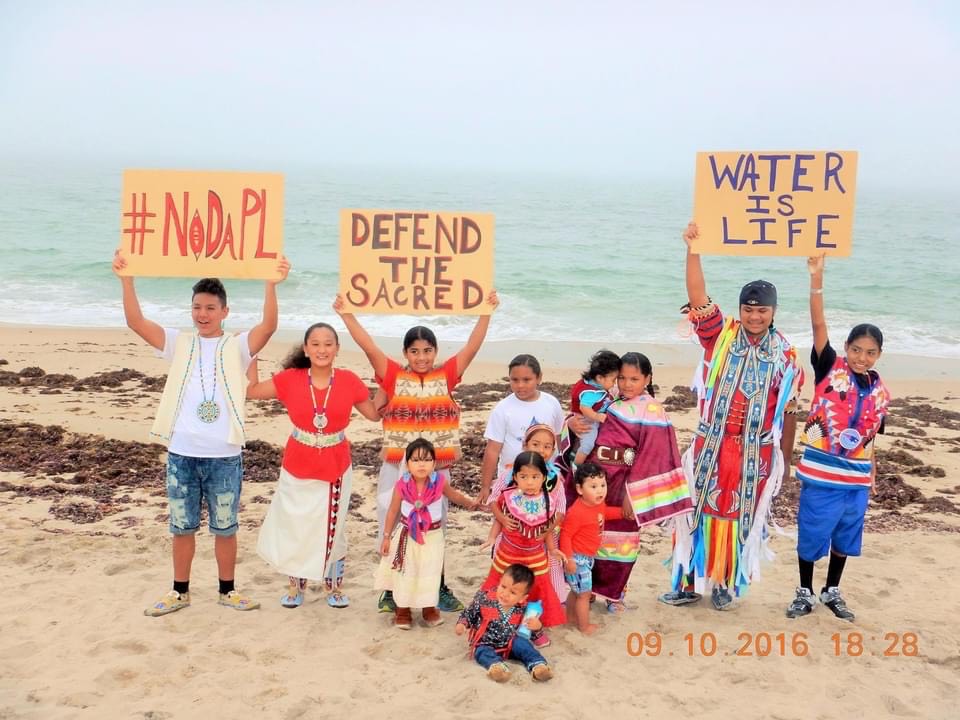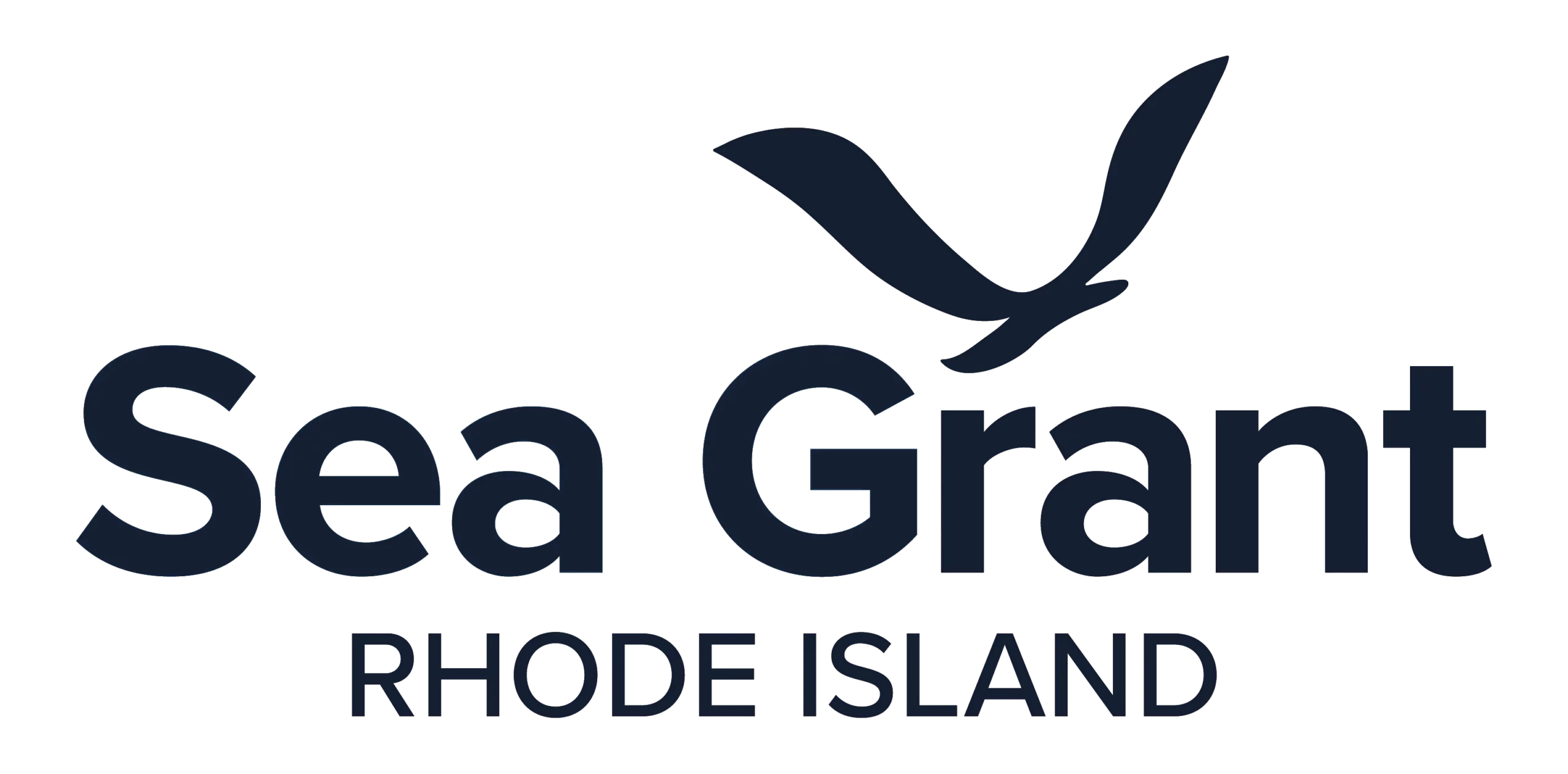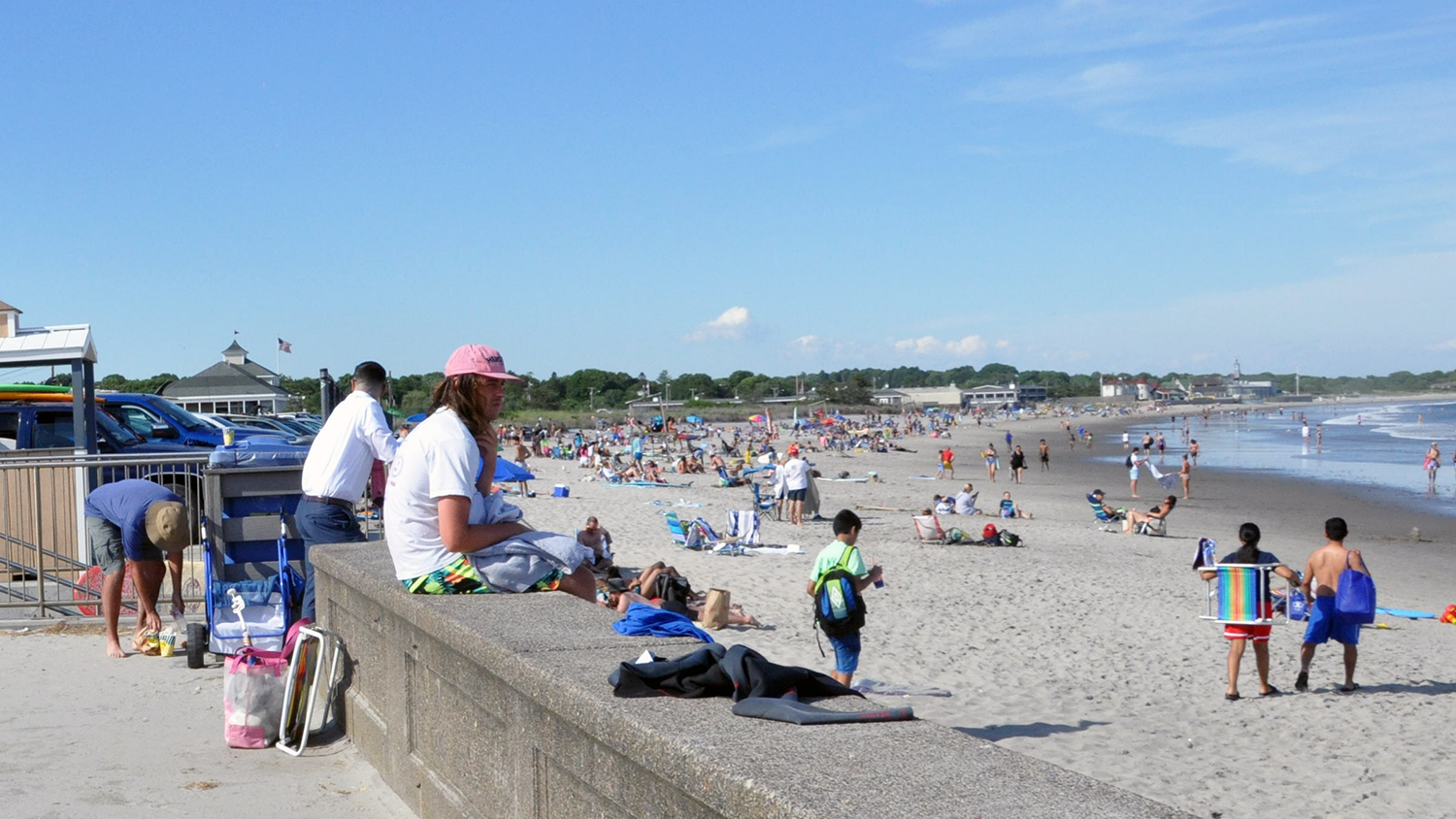The word ‘Narragansett’ permeates Rhode Island, naming its primary bay, a coastal town, and numerous roadways. Its meaning to the Narragansett Indian Tribe, however, invokes not only a place, but a relationship.
‘Narragansett’ roughly translates to “people of the small point,” said Cassius Spears Jr., First Councilman of the Narragansett Indian Tribe, during a recent discussion on coastal access at URI’s Narragansett Bay campus. “The point refers to a geographic feature found along the coastline that reaches far out into the ocean, where land meets the water … as mishoon (canoe) people, these points, inlets, bays, and estuaries serve as a connector to our relatives.”
Spears, who is also a soil conservationist, likens his role of caring for the earth to taking care of a family member. “One key concept taught in soil science today is that the soil is living, a basic concept that is just now being applied in conservation, but has always been inherent in Narragansett ways of knowing… For Narragansett people, our knowledge understands ‘living’ through relational systems. The soil is living. The water is living. The air is living … When I talk about the lands or waters, I’m talking about relatives… and my responsibility to those relationships as kin,” he said.
“Western scientific knowledge teaches separation between living and non-living in grade school. A concept that allows the acceptance of ‘nonliving’ objects, processes, or phenomena as potential commodities to be controlled or exploited. Our understanding of living may be better translated as potential energy or a force that requires acknowledgment of beinghood. An understanding that allows us to have healthy relationships within creation that are necessary to maintain balance.”
It’s an inherent right that we all have access to water.

Members from the Narragansett Indian Tribe and from other tribes in the extended tribal community on East Beach in Charlestown stood in solidarity with Standing Rock Sioux Tribe during protests over controversial construction of a pipeline that threatened water supply and cultural resources.
“We wanted to represent water in our form, which is the ocean,” said Spears. “We went down there to protest and stand with our relative, or grandmother, the ocean.
Photo by Narragansett Indian Tribe member Anemone Mars.
Spears continued, explaining how contemporary society operates within a system designed to establish property and ownership. “Our culture informs our understanding differently than systems applied today. So when discussing rights, policy, or practices, within a place it’s important to center indigenous knowledge derived in relation with that place… Our connection with this land, with these waters, with this place, are necessary and goes back tens of thousands of years.”
Despite this legacy, the Narragansett Indian Tribe holds less than 0.02% of their ancestral territory with no coastal access. Land dispossession is primarily due to detribalization efforts, bad faith agreements, taxation, and pressure campaigns that would be considered illegal today, said Spears.
Spears said that the unjust taking of his Tribe’s lands means that “today, the Tribe has no explicit access to the coast even though it is tied directly to our physical, emotional, and spiritual well-being.”
Increasing privatization of the coast has led to restricted access and increased development of landscapes, making access to sacred spaces and continuing customary practices more difficult for the Tribe, said Spears, raising several environmental justice questions.
“It is increasingly critical for us as the original inhabitants of this land to protect our inherent ancestral rights for future generations. To be Narragansett, we must have access to the shore to maintain our lifeways and to teach our children how to be ‘the people of the small point,” he said, adding, “Access to the coast is a fundamental moral and ethical right not just for Narragansett people but for all human beings.”
In 2022, the Narragansett Town Council has voted to waive walk-on fees to the town’s public beach for all members of the Narragansett Indian Tribe. Photo by Alex Nunes, The Public’s Radio. Fulll story >>
Like many Rhode Island residents, Narragansett people must fight for parking, navigate crowds of tourists, pay beach fees, and seek access points that are often restricted or blocked. Earlier this year, the Narragansett Town Council voted 3-2 to grant free access to the town beach for members of the Narragansett Indian Tribe, which came with some contentious responses from the public.
“Sometimes my Tribe is unfairly targeted and challenged over fear and misunderstanding,” said Spears, noting that “out of all the ongoing land issue concerns faced by my Tribe, beach passes were a significant gesture but a relatively minor accomplishment. However, the dialogue generated from the passing of this policy revealed a more substantial problem within our shared communities when comprehending what coastal access rights mean for Indigenous people.”
“Supporting tribal sovereignty and Indigenous rights helps Narragansett people and offers a pathway toward a healthy relationship with lands and waters for all people,” he added. “To preserve coastal access for all under the law, Indigenous rights and practices must be guaranteed.”
Cassius Spears Jr. was a guest speaker as part of the Narragansett Bay Campus Justice, Equity, Diversity, and Inclusivity seminar series aimed at encouraging conversations and professional development. This series is supported by Rhode Island Sea Grant, the Coastal Resources Center, the Coastal Institute, and URI’s Graduate School of Oceanography.
By Meredith Haas

